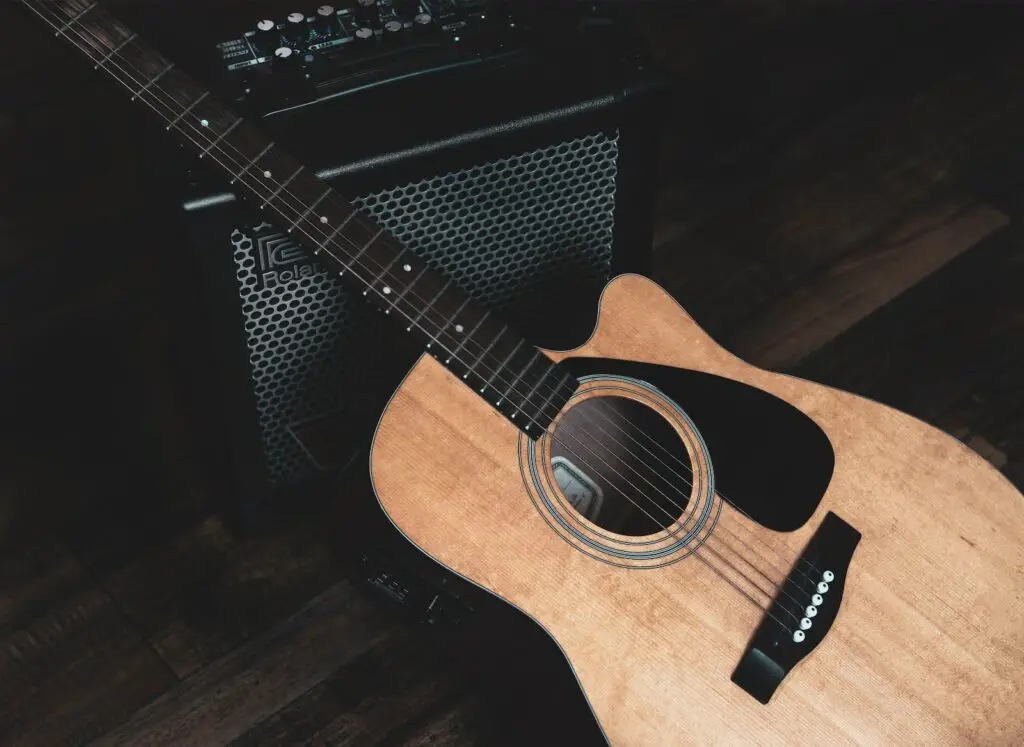Direct Injection boxes serve as intermediaries between instruments and consoles or multitrack recorders.
Since acoustic guitars have high impedance and studio equipment has low impedance, DI boxes were initially used to resolve this impedance mismatch.
DI boxes convert unbalanced, high-impedance signals into balanced, low-impedance boxes while matching the impedance between an instrument and its connected equipment.
This helps avoid signal loss while maintaining instrument clarity and tone. Furthermore, many DI boxes come equipped with a ground lift switch, eliminating unwanted hum or noise caused by ground loops.
DI boxes are an invaluable asset for musicians or audio engineers seeking to enhance the quality and consistency of their sound.
Functioning Of DI Boxes
Recording acoustic guitars can be challenging for even the most experienced recording engineers.
Fortunately, a DI box can be invaluable for achieving the best possible sound quality.
This conversion ensures compatibility with other equipment in the signal chain, such as mixing consoles, audio interfaces, and recording devices.
The high-impedance movement can cause noise, distortion, and frequency loss without a DI box.
Using a DI box helps in removing ground noise which can often be problematic when recording acoustic instruments.
Importance of Using a DI Box for Recording Acoustic Guitars
Convert Impedance
The signal produced by an acoustic guitar is typically unbalanced and carried through a ¼” input.
However, interference may occur when connecting this signal directly to a mixing desk with a cable longer than 5 meters.
A DI box can convert the unbalanced input into a balanced signal or XLR output to prevent this issue.
This conversion enables longer cables without experiencing signal degradation or interference.
Remove Ground Noise
In addition to impedance conversion and noise reduction, DI boxes can isolate instruments and eliminate noise bleeding.
It lets you capture the full vibe of an acoustic guitar performance without interference from other sources.
When using a DI box to capture an isolated guitar signal, you can still send the same signal to an amplifier, making it a valuable tool for live concerts or recordings.
This capability allows you to achieve a clean, direct recording of the guitar signal while sending the same signal to an amplifier for live sound reinforcement.
Support in Recording A Direct Guitar Signal
A DI box provides effective noise shielding for the guitar signal without compromising the volume or high-frequency information.
It allows you to record a direct guitar signal during the mix, which can be a helpful backup when amp mics are unusable.
The direct guitar signal recorded using a DI box can be precious when dealing with difficult recording environments or when traditional microphone techniques are not feasible.
Support In Re-Amp a Guitar Signal
A DI box is invaluable for guitarists who require access to professional recording equipment. It captures the guitar signal and allows its use with digital amp simulators, giving musician’s complete control over all aspects of their performance.
Therefore, it is a valuable device that every guitar player should consider having.
In addition to recording and processing guitar signals, a DI box can be used for various applications, such as connecting instruments with low output signals to mixing consoles or eliminating ground loops and hum.
What Type Of DI Box Is Suitable For The Acoustic Guitar?
DI box is ideal for those who want to preserve the natural tone of their acoustic instruments.
Since they lack active components, they don’t alter the instrument’s sound. Instead, they provide a clean signal transfer that reproduces that sound accurately.
DI boxes also tend to have simple designs with only a few input and output connectors.
It is great for live performances and recording since no external power source is required, making them reliable in almost any situation.
What Is The Purpose Of A DI Box For Acoustic Guitar?
DI boxes are essential for guitar players who strive to produce superior audio when amplifying acoustic guitars.
They help reduce ground noise and hum caused by long cable runs, turning acoustic guitar’s high-impedance unbalanced signal into a low-impedance balanced signal that can be connected directly to a mixing console or recording interface.
DI boxes help prevent unwanted noise and interference from entering the signal path, helping to eliminate noise infiltration.
DI boxes are available in passive and active models such as attenuation pads or ground lift switches for improved clarity and quality of an acoustic guitar’s signal.
Can A DI Box Improve The Sound Quality Of My Guitar?
A DI box is essential for guitar players looking to amplify their acoustic guitar sound. It boosts the signal from guitar and makes it sound more consistent.
It can also reduce noise and feedback, particularly useful when performing live or in a recording studio.
A DI box converts high-impedance unbalanced signal into a low-impedance balanced signal compatible with amplifiers and PA systems to keep the sound clean without any unwanted noise or distortion.
Professional guitar players will find investing in a DI box an invaluable investment in improving the quality of their acoustic guitar sound.
Can DI Boxes Get Rid Of Ground Hum?
A DI box provides reliable control of instrument’s volume by converting an unbalanced signal to a balanced signal and eliminating ground hum.
This is especially useful during live performance settings, where you may need to adjust the sound on the spot quickly.
DI boxes also help prevent signal loss which can occur when connecting long cable runs or connecting to equipment with high input impedance.
Furthermore, using a DI box provides more consistent audio, making achieving desired tones or effects simpler.
DI boxes are essential for guitar players who want to improve the quality and clarity of their instrument’s signal when playing through an amplifier or PA system
How Can The Playability Of An Acoustic Guitar Be Improved?
Switching guitar’s string gauge is an effortless and effective way to alter its tone and feel.
Lighter gauges are easier to play, making them ideal for guitar players with weak hands or who have trouble with barre chords.
They produce a brighter sound, making them great for folk or indie music genres.
Conversely, heavier gauges require more finger strength but have fatter tones with greater volume, ideal for rock or blues players.
Finding the ideal string gauge for acoustic guitar is a personal preference, and experimenting with different gauges can help you discover which works best.
The choice of string gauge immensely affects the playing experience and the sound produced.





